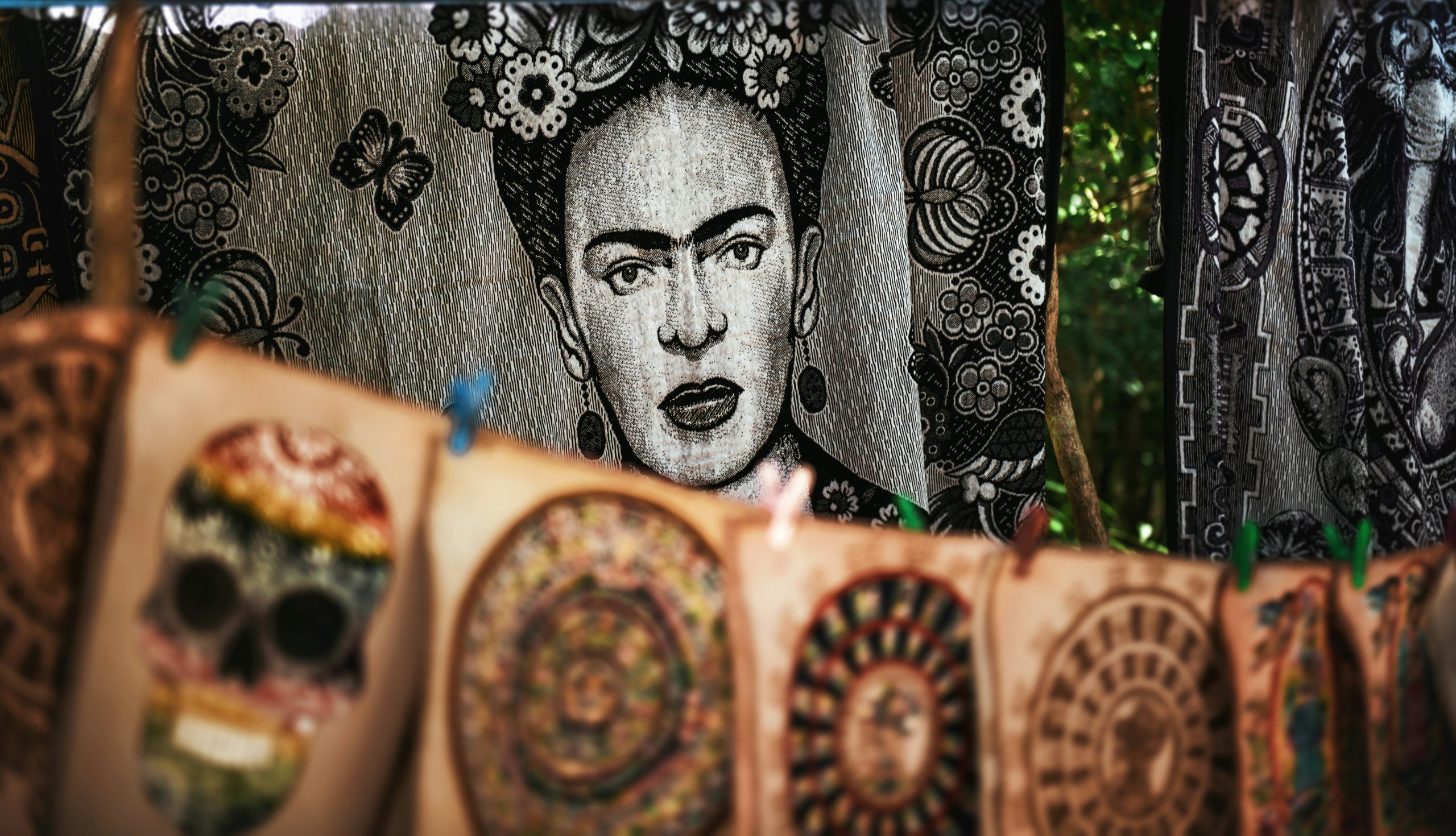interviews
Laia Jufresa on Grief, Language & Mexico
Talking with the author of the new novel Umami

How can I explain, in just a few sentences, the richness of Umami (Oneworld, 2016) by Laia Jufresa? Translated from the Spanish by Sophie Hughes, Umami explores a community of five homes in Mexico City, clustered around a small courtyard. Each contains its own story. There’s twelve-year old Ana, dealing with the loss of her little sister. There’s the widower Alfonso, typing a record of his relationship with his late wife Noelia. And there’s Marina, a painter who doesn’t paint but invents colors like cantalight (a melon-y orange that appear in the sky at twilight). Jufresa, who speaks several languages and has spent her life across at least three continents, talked with me about crafting the five voices that narrate this richly textured novel.
Monika Zaleska: You were born in Mexico, spent your teen years in France, returned to Mexico, and now live in Germany. I was hoping you could speak about how living with different cultures and languages has shaped your writing.
Laia Jufresa: I was born in Mexico City and then we moved to a very rural area when I was six. I became a reader there, thanks to my grandfather who would send me books in English. So I have this old relationship with English, but it’s mostly in the written form, because I’ve never really lived in an English-speaking country. Then, I moved to France. I’ve lived in Spain, Argentina, and now Germany. I think this has shaped me in many ways. One is that it has just made me adaptable. I think on a very practical level of how you inhabit characters, the fact that you’ve seen different cultures has an effect [on your writing]. I think that does something for empathy and for imagining yourself in other people’s lives.
Zaleska: I wanted to talk to you about the role of English in this book, and in your writing process. You actually started writing some of these characters in English and then brought the project back into Spanish. Is writing in English something you had done before? Why the impulse to switch languages when writing?
Jufresa: I think that’s how I work in many cases. Because I read so much in English, it often just comes naturally to me to write in English when I’m starting a draft. That shapes my writing at lot, because then I’m not necessarily working with a first draft in Spanish. I’m already translating, and so I’m looking for nuances. English is such a rich language and sometimes it’s very frustrating to translate from English because you really can’t find an equivalent. With Umami, Ana and Pina’s voices started in English. But it quickly became a very Mexican book, not only in its content, but also in its language.
Zaleska: In Alfonso’s narrative, a lot of time is spent exploring an older, indigenous Mexico and how that is contrasted by the modern country. On the one hand, as an anthropologist, Alfonso is really fascinated by ancient grains such as amaranth, milpas, and the pre-colonial culture of Mexico. On the other, his wife Noelia makes fun of pretentious women who wear “indigenous Mexican outfits, but designer.”
Jufresa: Mexico is very ambiguous in this sense. It’s a very nationalistic country. Yet people who are very proud of their past, will at the same time be very racist. It’s almost like there’s this line that they trace to say, “This was our past. It was amazing. We are an old culture,” but then they will look down on anyone who has an indigenous background. I grew up very close to this because my mother is an anthropologist, though not a food anthropologist like Alfonso. She studied public health. All my childhood I would be taken away from my little school in Mexico City and I would travel with her to very far away indigenous parts, where we would be camping or sleeping in the tiny room that served as a health clinic. I was aware, very early on, of how many different countries Mexico [had inside it] and how different it was to be a city kid from a rural kid. I would go to these schools, and I would be the only one with shoes. I have always been angry and fascinated by these things. I didn’t choose to become an anthropologist, but I think this comes through in my fiction, whether I want it to or not.
Zaleska: And then there’s the irony of Ana trying to plant a milpa in Mexico City, where the soil is full of lead. There’s this butting up of those two Mexicos.
Jufresa: Yeah, also the characters in Umami are very middle class. There’s still this idea, even inside Mexico, that if you write about Mexico you have to write about the real rural, violent Mexico, as if all the other things were not Mexico. Yet [the middle class] is overly represented in literature because people who become writers grew up with houses with books. It’s not so mysterious. I sometimes felt uncomfortable writing Umami, but the truth is I did it at a time when [the middle class] was not overly represented. Now the war and the violence are over-represented.
Zaleska: You touch on the imbalanced relationship between Mexico and the United States in several small moments in Umami. For example, there’s Alfonso’s fear that he’s really working for “gringo academics,” who will discover his research and get all the credit for it. Worse, that amaranth will be the next quinoa or avocado — a food trend for Americans.
Jufresa: I don’t think I can convey to you how present the United States is in Mexico. Culturally. All the TV. All the music. Everything. And in a very non-mutual way. We have the feeling of being fairly invisible to the United States. Or, being visible in a very prejudiced and short-sided way, because of immigration and war and drugs. Visible in a very unfair way, because the United States never takes responsibility for its part in the war that is destroying Mexico. Really, it is the consumer and provider of guns, and the consumer of drugs. But we don’t think of this conflict as between two countries. We think the Mexicans are coming.
I don’t think I can convey to you how present the United States is in Mexico. Culturally. All the TV. All the music. Everything. And in a very non-mutual way.
I am married to an American, so I have very slowly discovered my own prejudice against the United States. When you haven’t lived in the United States and all you have consumed is like Hollywood movies, it’s hard to imagine that people are not really that shallow. You need to go to a more particular level of really meeting people one-on-one, to break [these prejudices]. I think that’s what literature does — stories allow you to have these kind of one-on-ones without really knowing people. I know a lot of people don’t agree, I always have this conversation with writer friends, but I do think that literature creates empathy.
Zaleska: I want to spend a few moments on the structure of Umami. There are four sections, and within those sections there are chapters that count down: 2004, 2003, 2002, 2001, and 2000. Each time we return to one of these years in the next section, we have the same narrator. For example, Luz, Ana’s little sister who later drowns, always narrates 2001.
Jufresa: I needed to go backwards in time so that we can have Luz speak when she’s alive in 2001. My very first idea of the structure would be that you would have the whole 2004, and then the whole of 2003, etc. But when I decided to chop them and do it several times around, it became very rich. There was the possibility of crossing bridges, the possibility of having someone say something that has repercussions three years later. It was like grief waves. This structure allowed [Luz’s] voice, but also worked with one of the big themes of the book.
Zaleska: Why was it important to you to explore so many variations or nuances of grief? It seems to me that each of these characters has a smaller or larger tragedy to contend with. How did this exploration develop and why was it important to you as a writer?
Jufresa: I left Mexico again in 2008 because I was in the north, working, and there was a shooting and they killed fourteen people. It happened a few meters away from me. And then I decided to leave Mexico. I realized I didn’t know what was happening in my country. I didn’t see it, fortunately, because there was a wall between me and the shooting. I only heard it. I was terrified. I saw the guns but I didn’t see the people being shot. That night I heard people from the town speaking and they were all very hurt, of course. They had lost a lot of people. They lost a baby. It was awful. But they were not surprised. To me, that was heartbreaking. I couldn’t imagine continuing to live in a country we have become so used to violence that people coming in two trucks and killing fourteen people is something that happens, and happens every day.
I didn’t want to write about the violence. I didn’t want to give it any more space.
I didn’t want to write about the violence. I didn’t want to give it any more space. One of the most horrible things that happens with this level of violence is that people who die become just a number. Because when there are so many dead, you don’t have time to mourn them. I felt at the time that everyone was writing about the guns and the violence and the blood. For a long time, in the back of my mind, I was thinking that grief needed more space. You read Umami and it has nothing to do with the violence in Mexico, or the war. But I think that for me, it does, in the sense that it gives grief space.
Zaleska: The structure of the book also allows that grief to become more complicated as we circle back to it. For example, Alfonso has his wife Noelia on a pedestal at the beginning of the book, and he’s so terribly sad about her death. But later, he’s able to admit there are things about their life together that disappointed him.
Jufresa: You know he’s the only one who is actually writing [a journal]. Little by little, the writing allows him to be more clear on what he is feeling and more free to say the things that, without the writing, he also couldn’t have, because it would be a sort of betrayal.
Zaleska: I was wondering if you could talk about your relationship with Sophie Hughes, the translator. It seems like it was a really creative, collaborative relationship.
Jufresa: I feel [Sophie] works a lot like a writer, not only in the sense that she cares about language, but that she really goes into the character. She wonders, what would the character say here, in English? What is she feeling? How does she say it? I think that’s very deep work. It kind of makes me think about good actors, you know? You can tell when an actor is inhabiting a character, or just saying the lines. I think she really inhabited the characters. She nailed so many of the different voices. I could have attempted to translate it myself, but I don’t think I would have ever been able to reach her level.









